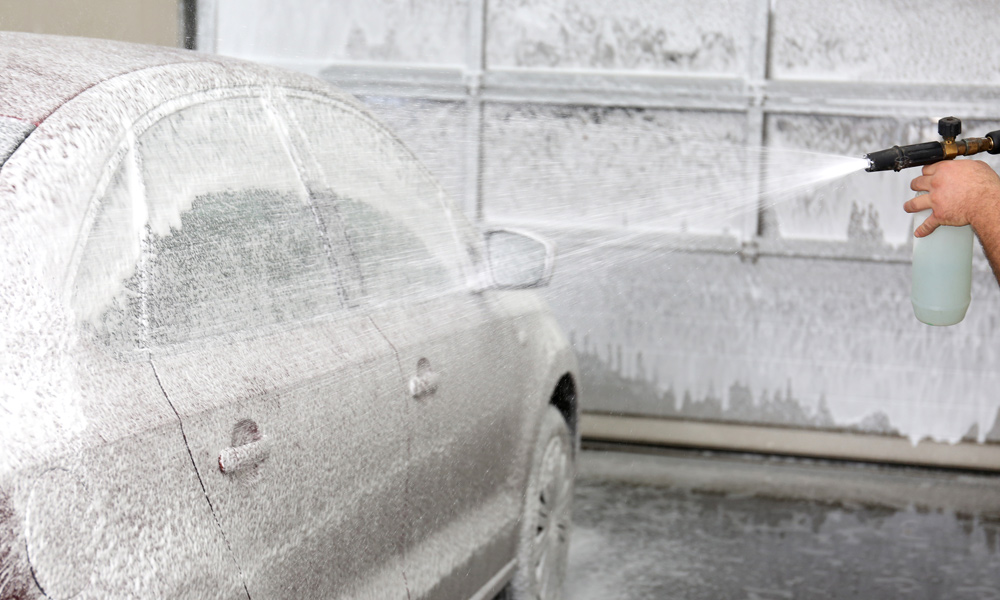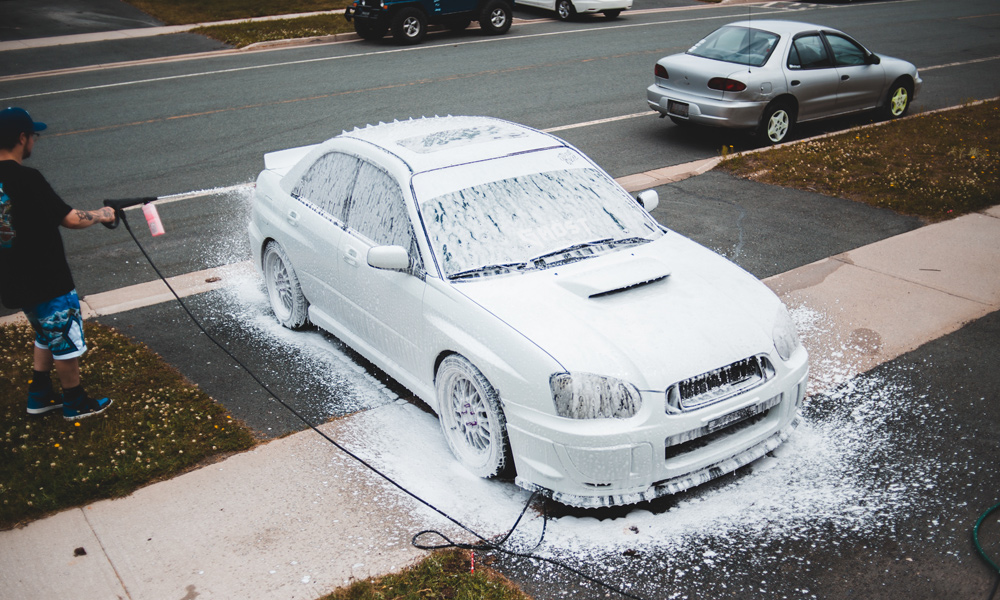A Complete Guide on Pressure Washer Soaps: Making the Most of Your Cleaning
Unlocking the Power of Pressure Washer Soaps for Superior Cleaning Results
Pressure washers are incredibly powerful tools, effective in various cleaning tasks from washing cars to pressure washing decks. They are even more potent when combined with the right soap or detergent. However, navigating the world of pressure washer soaps can be daunting, with a myriad of choices available. This comprehensive guide will help you understand the different types of pressure washer soaps, their uses, and how to choose the right one for your cleaning needs.
What is Pressure Washer Soap?
Pressure washer soap is a specially formulated solution designed to be used with pressure washers. They are different from your regular household soaps and are created to work under high pressure, making them highly efficient at cleaning various surfaces.
Why Use Pressure Washer Soap?
Plain water can certainly do some cleaning, but the combination of water and pressure washer soap enhances the cleaning power, effectively breaking down tough grime, grease, or dirt. It can help your pressure washer cut through the dirt on your driveway, strip old paint off walls, or give your car a sparkling shine.
Types of Pressure Washer Soaps
Pressure washer soaps come in a variety of types, each designed for specific tasks:
- Vehicle Cleaners: These mild detergents are great for washing cars, boats, and other vehicles. They are designed to cut through road grime and brake dust but gentle enough not to damage vehicle paint or clear coat finishes. For an optimal car washing experience, consider using one of our recommended pressure washers for cars.
- Deck and House Cleaners: These soaps are perfect for outdoor cleaning tasks like pressure washing decks, fences, and home siding. They effectively remove mildew, dirt, and old wood and vinyl siding stains.
- Multipurpose Cleaners: These soaps are designed for various cleaning tasks, making them perfect for homeowners who need to clean different surfaces.
- Degreasers: These are specially formulated soaps designed to tackle grease and oil stains. They are great for cleaning driveways, garage floors, and barbecue grills.
- Concrete and Driveway Cleaners: These are heavy-duty cleaners designed to remove stubborn stains from concrete, brick, and other hard surfaces.
Remember to choose a soap that is compatible with your pressure washer model. Some pressure washers, especially the best electric pressure washers, require specific types of soap.
How to Use Pressure Washer Soap
Using pressure washer soap is straightforward. Most pressure washers have a soap dispensing system, where you fill the soap tank, and the soap is automatically mixed with water at the right ratio. You can control the amount of soap dispensed with the soap adjustment knob.
Remember to use the appropriate pressure washer nozzle. A soap nozzle, usually black, provides a wide spray pattern and lower pressure, perfect for applying soap.
Always rinse the soap off with clean water after cleaning. This helps to prevent soap residue, which can be difficult to remove once it dries.
Choosing the Right Pressure Washer Soap
The choice of pressure washer soap depends on the cleaning you need to do. Here are some tips to help you select the right one:
- Consider the Material: Different soaps are formulated for different materials. For example, the soap you use for your deck may not suit your car. Always use the appropriate soap for the cleaning material to avoid damaging the surface.
- Eco-Friendly: If you are concerned about the environment, look for biodegradable soaps. These soaps break down quickly and don’t harm the environment.
- Effectiveness: Some soaps are more powerful than others. For tough stains and grime, you’ll need a heavy-duty soap.
- Compatibility: Make sure the soap is compatible with your pressure washer. Not all soaps are suitable for all machines. For instance, certain soaps work better with gas pressure washers than electric ones.

Safety Precautions
When using pressure washer soap, it’s essential to follow these safety precautions:
- Wear Protective Gear: Always wear protective gear like gloves and safety glasses when working with pressure washer soap.
- Follow Manufacturer’s Instructions: Always follow the instructions provided by the soap manufacturer and your pressure washer’s manual.
- Avoid Direct Contact: Avoid direct contact with the soap, especially with your eyes and skin, as it can irritate.
- Keep Out of Children’s Reach: Always store pressure washer soap out of the reach of children.
Final Thoughts
Choosing and using the right pressure washer soap can significantly enhance your cleaning power, making tasks quicker and more efficient. Whether you’re cleaning your deck, car, or home siding, the right soap can make all the difference. Visit Best of Machinery for in-depth reviews and guides on everything from the best commercial pressure washers to pressure washer troubleshooting problems and more.
